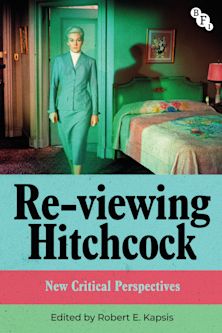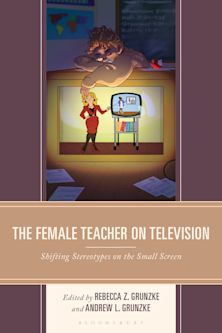Reframing 9/11
Film, Popular Culture and the "War on Terror"
Reframing 9/11
Film, Popular Culture and the "War on Terror"
This product is usually dispatched within 10-14 days
- Delivery and returns info
-
Free UK delivery on orders £30 or over
Description
September 11th, 2001 remains a focal point of American consciousness, a site demanding ongoing excavation, a site at which to mark before and after "everything" changed. In ways both real and intangible the entire sequence of events of that day continues to resonate in an endlessly proliferating aftermath of meanings that continue to evolve. Presenting a collection of analyses by an international body of scholars that examines America's recent history, this book focuses on popular culture as a profound discursive site of anxiety and discussion about 9/11 and demystifies the day's events in order to contextualize them into a historically grounded series of narratives that recognizes the complex relations of a globalized world. Essays in Reframing 9/11 share a collective drive to encourage new and original approaches for understanding the issues both within and beyond the official political rhetoric of the events of the "The Global War on Terror" and issues of national security.
Table of Contents
Foreword: Reza Aslan
Introduction: Jeff Birkenstein, Anna Froula, and Karen Randell
Section One: (Re)Creating Language
Chapter One: Fear, Terrorism and Popular Culture, David L. Altheide
Chapter Two: The Aesthetics of Destruction: Contemporary US Cinema and TV Culture , Mathias Nilges
Chapter Three: 9/11, British Muslims, and Popular Literary Fiction, Sara Upstone
Chapter Four: Left Behind in America: The Army of One at the End of History, Jonathan Vincent
Chapter Five: 9/11, Manhood, Mourning, and the American Romance, John Mead
Chapter Six: An Early Broadside: The Far Right Raids Master and Commander: The Far Side of the World, Jeff Birkenstein
Chapter Seven: The Sound of the "War on Terror", Corey K. Creekmur
Section Two: Visions of War and Terror
Chapter Eight: Avatars of Destruction: Cheerleading and Deconstructing the "War on Terror" in Video Games, David Annandale
Chapter Nine: The Land of the Dead and the Home of the Brave: Romero's vision of a Post 9/11 America, Terence McSweeney
Chapter Ten: Superman is the Faultline: Fissures in the Monomythic Man of Steel, Alex Evans
Chapter Eleven: The Tools and Toys of (the) War (on Terror): Consumer Desire, Military Fetish and Regime Change in Batman Begins, Justine Toh
Chapter Twelve: "It was like a movie": The impossibility of representation in Oliver Stone's World Trade Center (2006), Karen Randell
Chapter Thirteen: The Contemporary Politics of the Western Form: Bush, Saving Jessica Lynch, and Deadwood, Stacy Takacs
Section Three: Prophetic Narratives
Chapter Fourteen: Governing Fear in the Iron Cage of Rationalism: Terry Gilliam's Brazil through the 9/11 Looking Glass, David Price
Chapter Fifteen: Cultural Anxiety, Moral Clarity and Willful Amnesia: Filming Philip K. Dick After 9/11, Lance Rubin
Chapter Sixteen: Prolepsis and the "War on Terror": Zombie Pathology and the Culture of Fear in 28 Days Later..., Anna Froula
Afterword: John Cawelti
Notes on Contributors
Bibliography
Index
Product details
| Published | 15 Jul 2010 |
|---|---|
| Format | Hardback |
| Edition | 1st |
| Extent | 256 |
| ISBN | 9781441111326 |
| Imprint | Continuum |
| Illustrations | 20 |
| Dimensions | Not specified |
| Publisher | Bloomsbury Publishing |
Reviews

ONLINE RESOURCES
Bloomsbury Collections
This book is available on Bloomsbury Collections where your library has access.



































